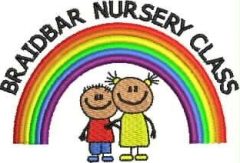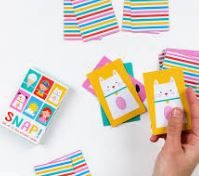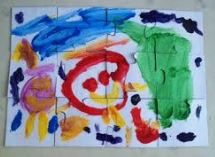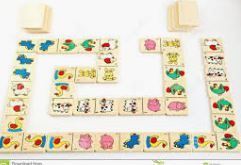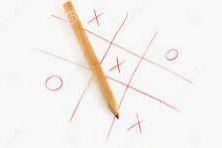Marhaba!
If you haven’t been onto Teams recently you may wish to log on to see a familiar face reading a story. Maybe you could share one of your favourite stories with us…
Today’s ideas are all simple tabletop games to develop turn taking, concentration, memory and the understanding that your child won’t always win.
- Put around ten items on a tray or table top. Take time to look at them and ensure your child can name each one. Ask your child to close their eyes then remove an item. When they open their eyes they should try to identify what’s missing. Take turns. Make it trickier by having a larger collection or by removing more than one item at a time. Change the game by closing your eyes and trying to recall the names of as many items as possible.
2. Use playing cards/matching pairs cards to play a game of pelmanism where the cards are turned upside down and each player turns two at a time, aiming to find a pair. Encourage your child to return cards to the place they were taken from to help players identify them later.
3. Play a fast paced snap game with playing cards/matching pairs cards.
4. Play a ‘collecting’ game such as Shopping List that requires looking, matching and patience.
5. Practise number skills and turn taking with a board game that involves the roll of a dice and counting spaces or moves. Snakes and ladders or ludo are examples.
6. Complete a jigsaw. Encourage your child to match colours and lines. Are there any straight edges? Where do they belong? Talk to your child about how they might solve the problem. Which strategy will they use?
7. Make your own jigsaw by creating a picture then cutting it up into a few pieces. Can another family member successfully complete it?
8. Play any kind of dominoes. The traditional game will allow your child to practice the skill of ‘subitising’; knowing how many are in a group without counting each item individually.
9. Sort out and tidy up jigsaws and board/card games. Are there missing pieces? Can you make new ones to replace them so you can still enjoy the game? Is the box damaged? Can you repair it with some tape?
10. If you think your child is able, why not take a pencil and paper and teach them how to play noughts and crosses? I’m sure lots of the children would thoroughly enjoy that!
